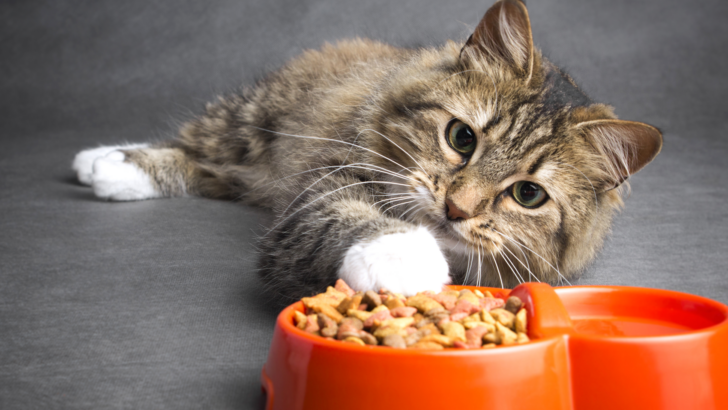Is your cat grinding his teeth when eating? Does it irritate and concern you at the same time?
Cats can develop these weird habits just like humans. But most of the time there are some underlying issues behind it. Sometimes, it’s a dental issue that your cat is dealing with, while other times it could just be something minuscule.
Cats are obligatory carnivores. This means that their diet has to include meat – their teeth are made for shredding, tearing, and chewing it. Their teeth are not made to grind its way through the food.
Your cat could easily break his teeth by continuously grinding them. Or, at the least, he could really damage them. Which you don’t want, I would assume.
Has your cat just started grinding his teeth while eating or is this something that’s been going on for a while? Either way, it’s bothering you.
You can’t listen to him eat something without feeling uncomfortable. You’re just waiting for the other shoe to drop and to see some actual issues emerge because of this.
Obviously, you’ve come here for an explanation and advice, so we’ll give you what you’re asking for. However, I’d still recommend you take your cat to the vet after reading, to make sure that everything is okay.
6 possible reasons for a cat grinding teeth when eating
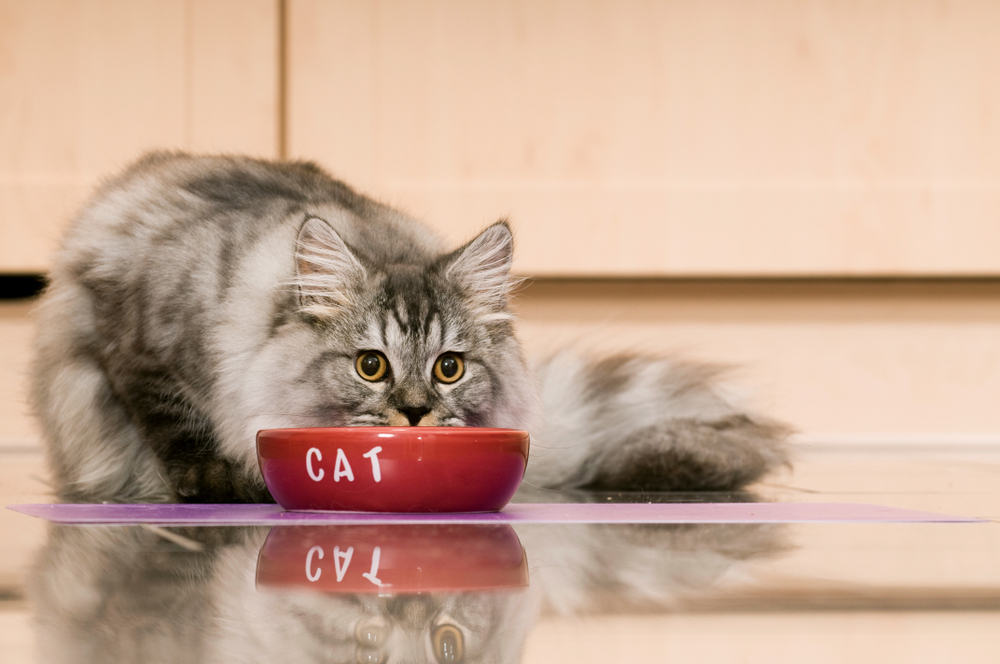
1. The food
Depending on the size and age of your cat, there’s a chance he isn’t able to chew his food properly. He could be struggling to eat through it because his teeth aren’t as strong when he’s still a kitten.
The first time I heard my cat grinding teeth when eating, I never thought that his dry food could be too hard to chew for him. He had me in a panicked frenzy.
I genuinely tried to figure out what was wrong and how I could help him. I even went to a couple of vets, and every single one of them told me that I had a healthy kitten.
But he kept on grinding his teeth.
In actuality, it wasn’t just that he was grinding his teeth, he was grinding the food that he was trying to eat. Once I changed to wet food and “chewy” dry food, he simply stopped grinding.
Needless to say, check the food you’re giving your cat. I know that it says that it was specifically made for our feline friends, but it could still be extremely hard to chew.
2. Dental issues
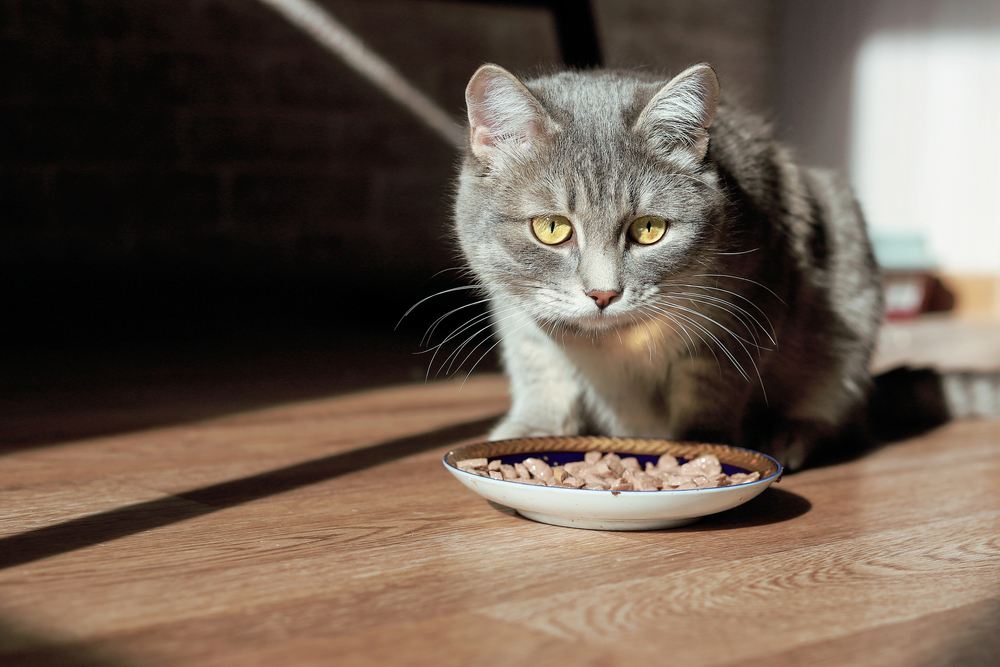
Dental problems are the most common reason for your cat grinding teeth when eating. There are many different things that can cause your cat’s teeth to be sensitive or even damaged.
These problems will cause him to grind his teeth, and you also may notice that he’s not very good at swallowing his saliva. All of these things are quite concerning, and you shouldn’t take them lightly!
The most common dental issues in our feline friends are:
- Cavities
- Mouth ulcers
- Bacteria-harboring plaque
- Tooth resorption
- Something stuck in his teeth
There’s a good chance that your cat is trying to relieve some of the pain in his mouth by grinding his teeth. That sounds horrible to humans, but it seems like an effective relief method for felines.
If your cat is struggling with one or more of these dental issues, check for symptoms such as drooling, blood in his mouth, and stinking breath.
If there’s something stuck between his teeth, he won’t really be able to use his tongue to get rid of it. Most of the time, he’ll try to grind his teeth to dislodge it and get it out of there.
You may want to look into your cat’s mouth to see what could be happening. If you spot something more serious happening, take him to the vet immediately.
Most of these problems can develop into severe issues that can be life-threatening to your little friend. So, it’s best to take this seriously.
3. Resorption of teeth
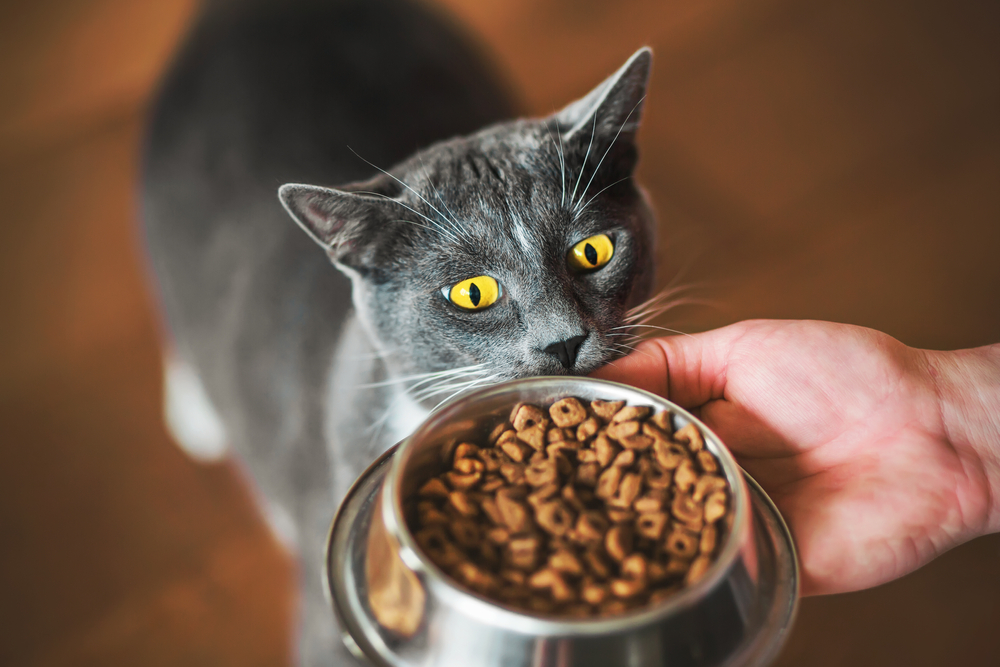
If your cat is grinding his teeth when eating, it could easily be that he’s experiencing tooth resorption. What is that, you ask?
Tooth resorption is the gradual destruction of one or more teeth in the mouth. This happens to almost 75% of cats above the age of 5.
Tooth resorption happens right at the gum, and it leads to the erosion of dentin, the substance that makes up the cat’s teeth. The tooth will be extremely painful to your cat and he’ll try to diminish it by grinding his teeth against each other.
This will happen mostly at mealtimes, as his teeth will feel much more sensitive and he won’t be able to control the ache.
The only solution that vets have found is the extraction of the sick tooth. There is no way (for now) to restore the tooth or to heal it. You’ll have to take your cat to the kitty hospital and get this fixed as soon as possible.
If you don’t deal with this on time, it can cause ulcers, bleeding of the gums, and infection.
4. Abnormal tooth alignment
You can’t tell me that some of your teeth aren’t weirdly aligned. I’m not judging! I’m just saying that almost every human has this problem. Their teeth aren’t aligned the right way, so they have a different way of biting into things.
The same goes for cats. They may have oddly aligned teeth that can create long-term issues for them.
This is mostly a problem with cats who have longer faces and tinier mouths. Their teeth don’t have enough space to develop properly, so they grow in weird ways.
Vets have found ways to deal with this in adult cats, but they are also able to predict if your kitten will develop this issue later on in life. They can see in cats as young as 5 months if their teeth will be crooked or misaligned.
5. Stress
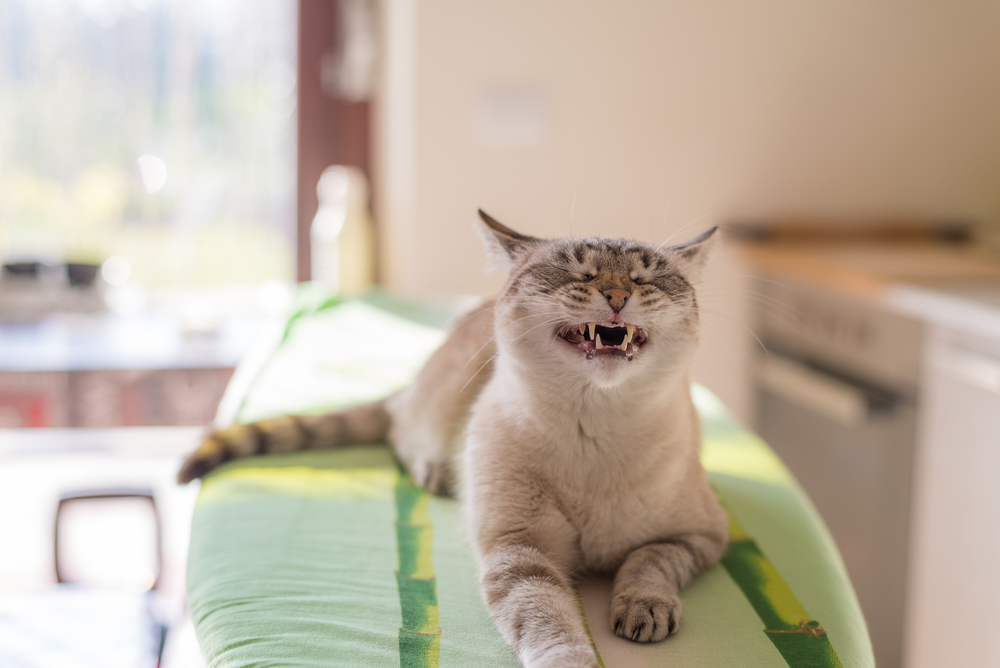
Did you know that humans can grind their teeth in their sleep if they’re stressed? Well, if you hear your cat grinding teeth when eating, it could be that he’s been under some sort of stress.
Stress in felines, as in other pets, can be caused by an abrupt change in their surroundings. For example, if you moved houses or introduced a new pet in the home.
Other stress triggers could include traumatic events. Has your cat been attacked by an animal, been in a car accident, or had a procedure done at the vet recently?
If any of those things are the case, then that could explain why your furry buddy is grinding his teeth. A cat grinding teeth when eating is a common thing, but in these cases, it’s not really noticed at first.
Your cat could seem the same as he always has, but something is simply off. If you see other behavioral changes, you may want to consider stress as a possible cause.
6. Other health issues
There could be other reasons. A cat grinding teeth when eating isn’t necessarily something that only has one reason behind it.
For example, low potassium could be a health issue that makes your cat grind his teeth. Potassium is essential for your cat’s muscle and nerve function.
Even something as scary as a tumor could cause your cat to behave this weirdly. At the end of the day, the best thing you can do is have your cat checked out by a veterinarian to see what can be done about this.
How to treat a cat that grinds teeth when eating
You can still try your luck and make sure that you’re doing everything in your power to relieve the torment your cat is going through. Some of those things include:
1. Brushing his teeth
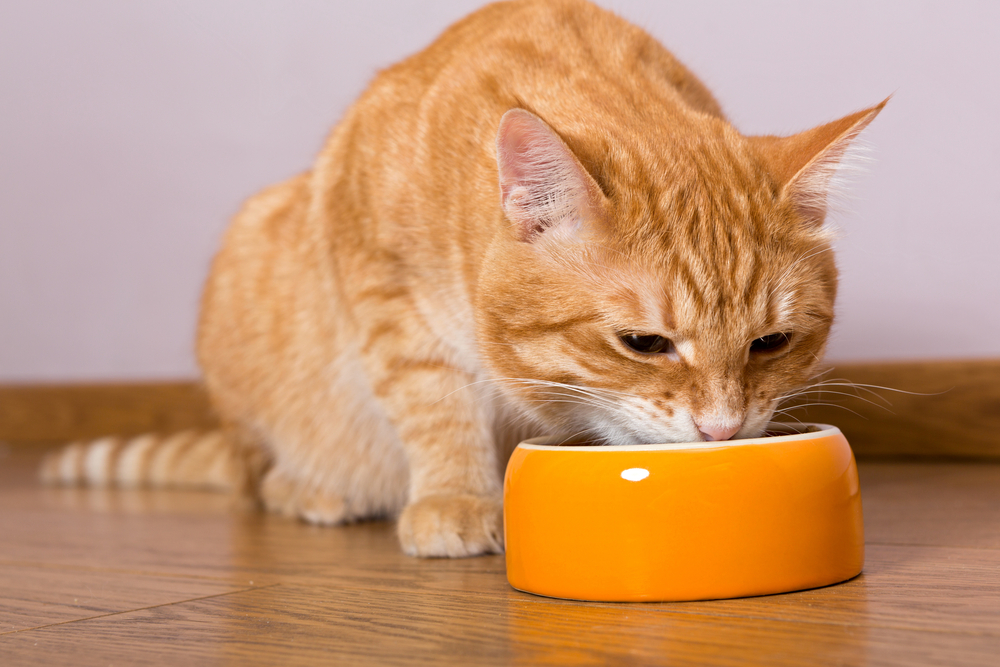
Prevention is better than cure, right? If you brush his teeth regularly, then you may not have to deal with this issue at all.
Sometimes food and random little things could get stuck in his teeth, causing your cat a lot of discomfort. So brush his teeth, even though he may not be a huge fan of it.
2. Check his mouth regularly
There’s no downside to checking your cat’s mouth on a regular basis. If you’re concerned about your cat grinding teeth when eating, then you may want to make this a routine practice.
3. Feed him the right food
Last, but definitely not least, make sure to feed him the right food. Don’t just give him foods that are hard to chew on. Feed him wet food that will be easy to chew and digest. If you want, there are many different treats for your cat that can strengthen his teeth.
At the end of the day, you can’t control everything that he puts in his mouth, but you can do your part.
